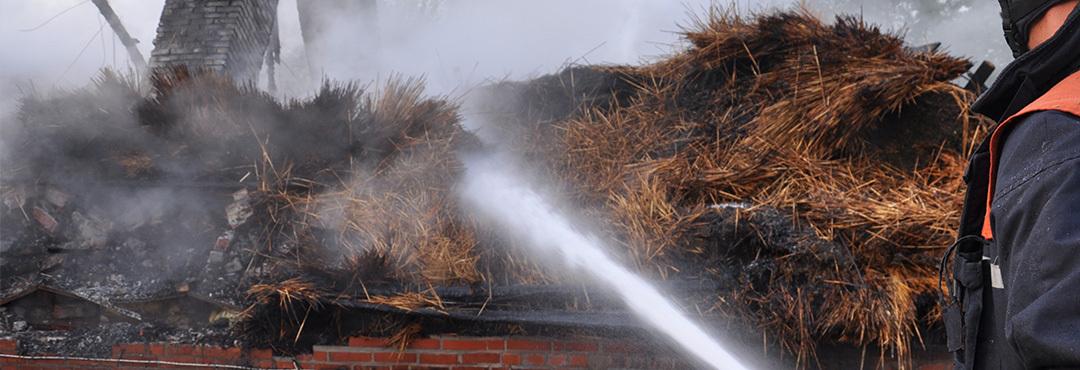Fireproofing Your Farm: The Importance of Professional Chimney Sweeping
As the winter chill tightens its grip on your farm and the fireplaces roar, it is more important than ever to heed the crucial aspects of chimney sweeping. Being informed on fire safety regulations and the possible requirements, should you unexpectedly need to claim on your commercial farm or small farm insurance, could make all the difference to a fire damage claim being paid out.
The Value of Cleaning Your Chimney
Recent statistics show approximately 7,000 chimney fires occur annually in England, with the critical observation being most of these incidents were entirely avoidable. A significant proportion of these fires occurred within the farming community, in agricultural buildings and thatched dwellings.
Insurers have long required that policyholders enlist a professional chimney sweeping service, particularly when dealing with thatched dwellings. With the usage of log-burning fires becoming the primary heating source due to inflation within the energy sector, there has been an increase in the risk of fire outbreaks. Underwriters are therefore bringing in this condition for ordinary domestic dwellings to employ the use of a professional chimney sweep, as well as for smallholdings to help mitigate fire risks.
The Impact of Not Holding Correct Fire Safety Documentation
Many owners and tenants, especially in the farming community, traditionally use their own chimney sweeping brushes. While this level of housekeeping offers a level of fire protection, being unable to produce a professional certificate can run the risk of a fire damage claim not being paid by insurers. A professional chimney sweeping service should be carried out regularly; this can be as much as three times in a burning season. Routine inspection and cleaning of chimneys and flues will help prevent fires within the chimney and help with an insurance claim should an incident occur.
At Farm and General, our pride stems from the fact that we're not just your average farm insurance company. We fully grasp that, to a farmer, their livelihood means everything. Here are the fundamental points to consider this winter:
- Hire a professional chimney sweeping service that can provide you with qualifying certification by The National Association of Chimney Sweeps (NACS). This service should be performed regularly, at least once per season or as much as three times during the winter when usage has increased, regardless of fuel type.
- Use a wood moisture meter to ensure all wood burned contains no more than 17% moisture content.
- Fully extinguish your fire safely, well in advance of leaving the house or before you go to bed at night.
- It is essential to purchase the correct size appliance for your room. HETAS is the official body recognised by the government.
The Most Common Causes of Chimney Fires
- Burning improper fuel types, such as unseasoned wet wood.
- Infrequent sweeping and cleaning of blocked flues.
- Overnight burning or smouldering of wood for long periods of time in wood stoves.
- Improper appliance sizing.
Without the appropriate insurance coverage, your farm or smallholding might be responsible for damages ranging from tens to hundreds of thousands of pounds, including the costs of agricultural building replacement and environmental remediation.
Farm and General: Comprehensive Farm Insurance Solutions
As January ushers in the heart of winter, it is time to prioritise the safety of your farms and homes. Cleaning your chimney by certified professionals is not just a seasonal chore but an essential step in safeguarding your farm, assets and livestock. Contact Farm and General to protect your assets against the threat of fires, whether they result from accidents or unforeseeable disasters.
Our team of farm insurance experts are dedicated to tailoring the ideal policy to meet your specific requirements. Secure immediate online coverage or call us at 01590 624399 for additional details.




